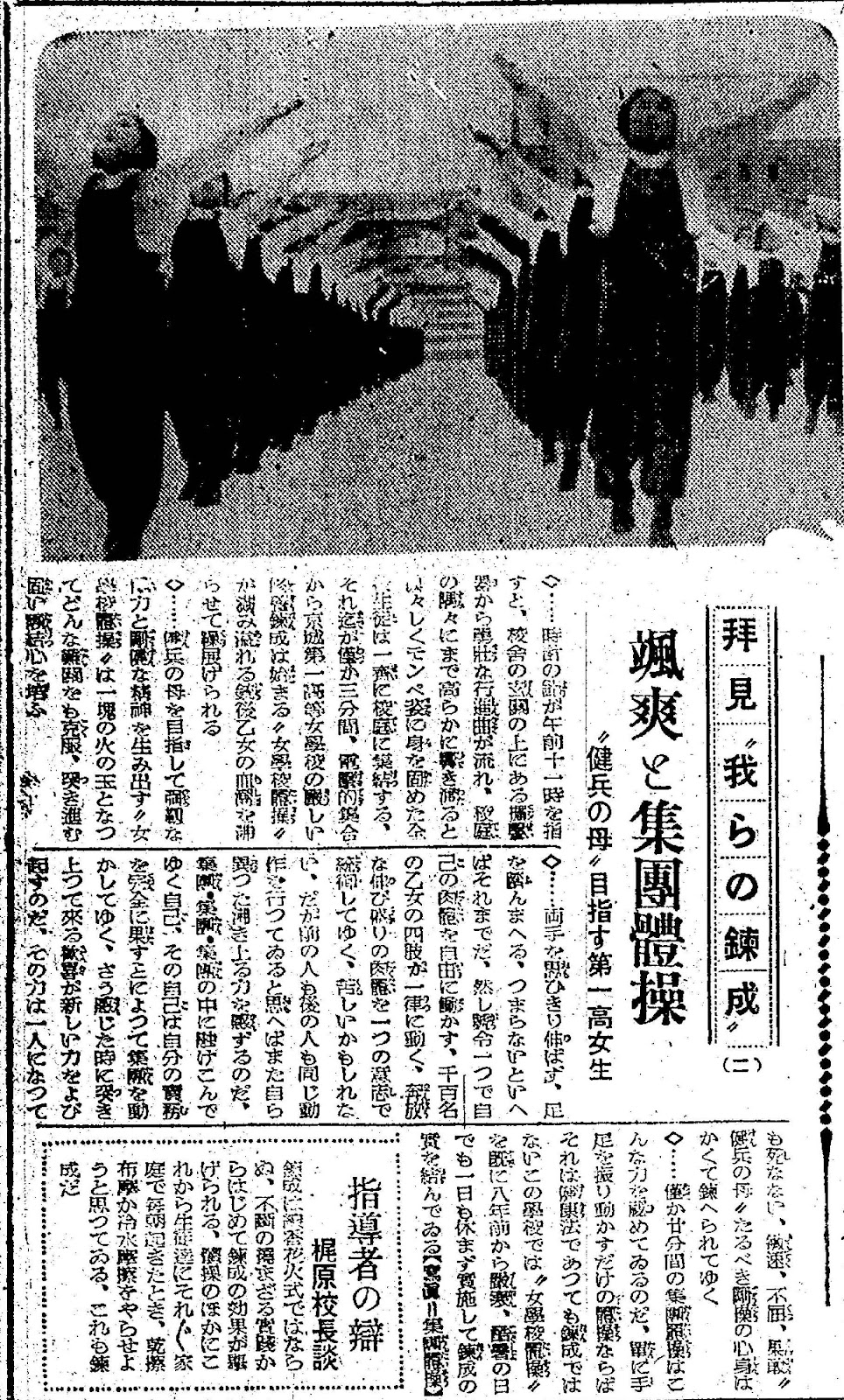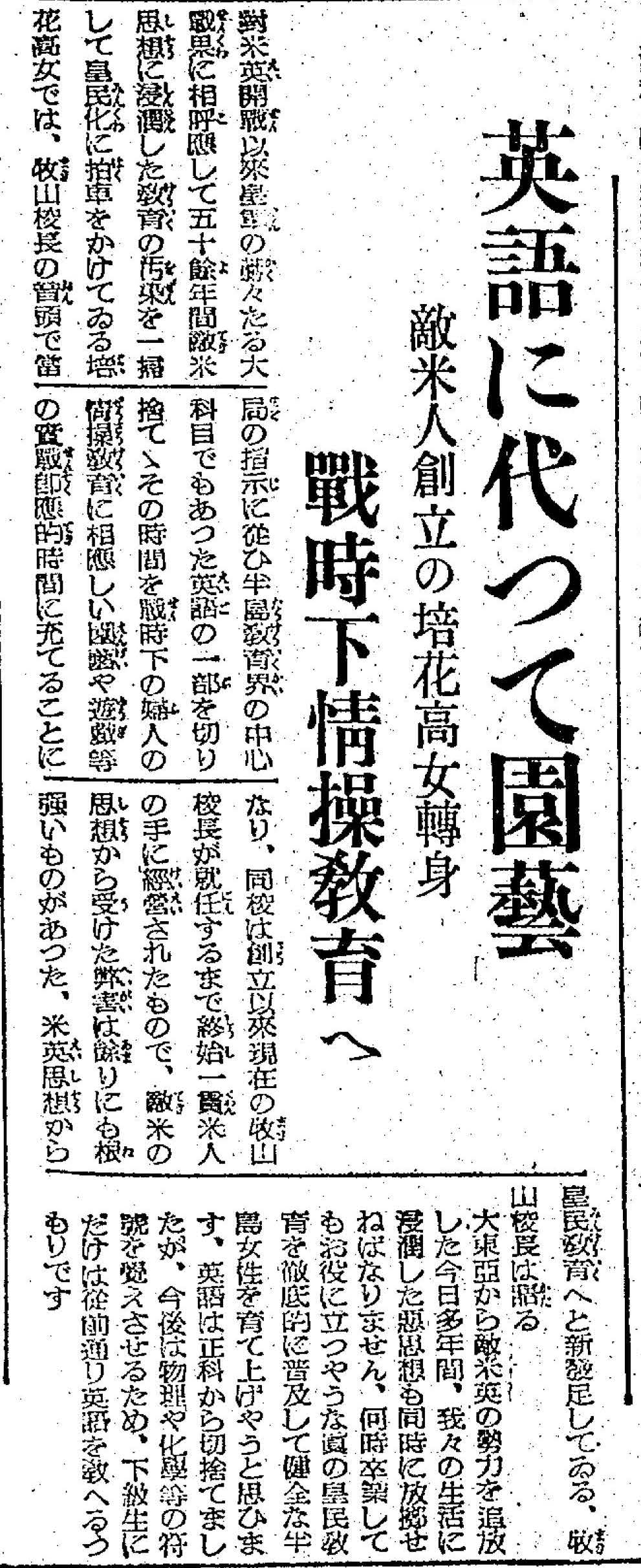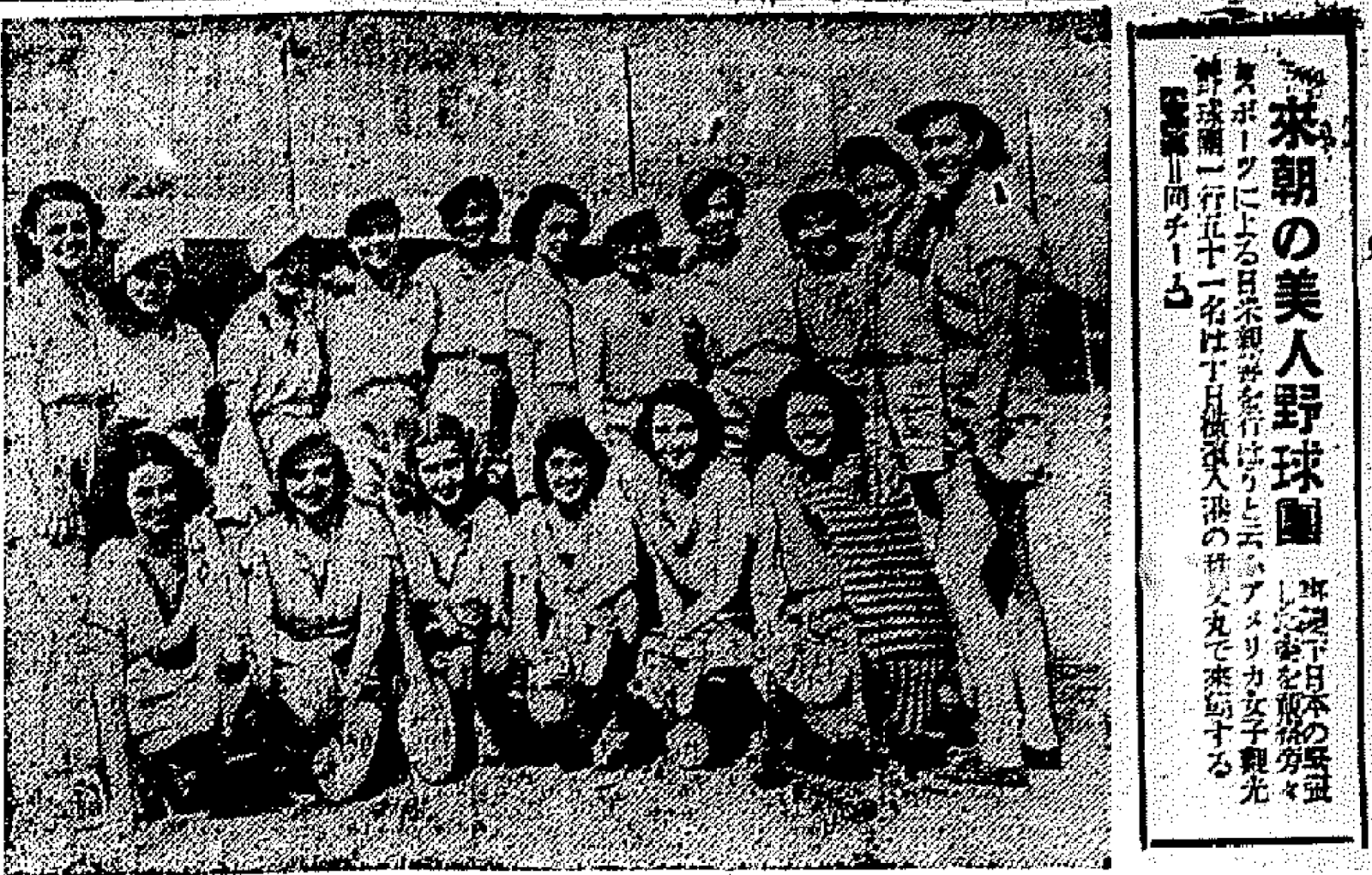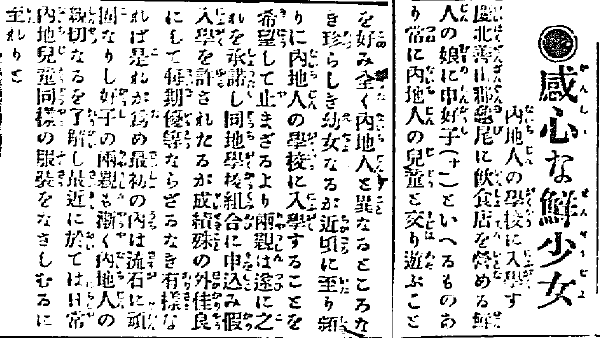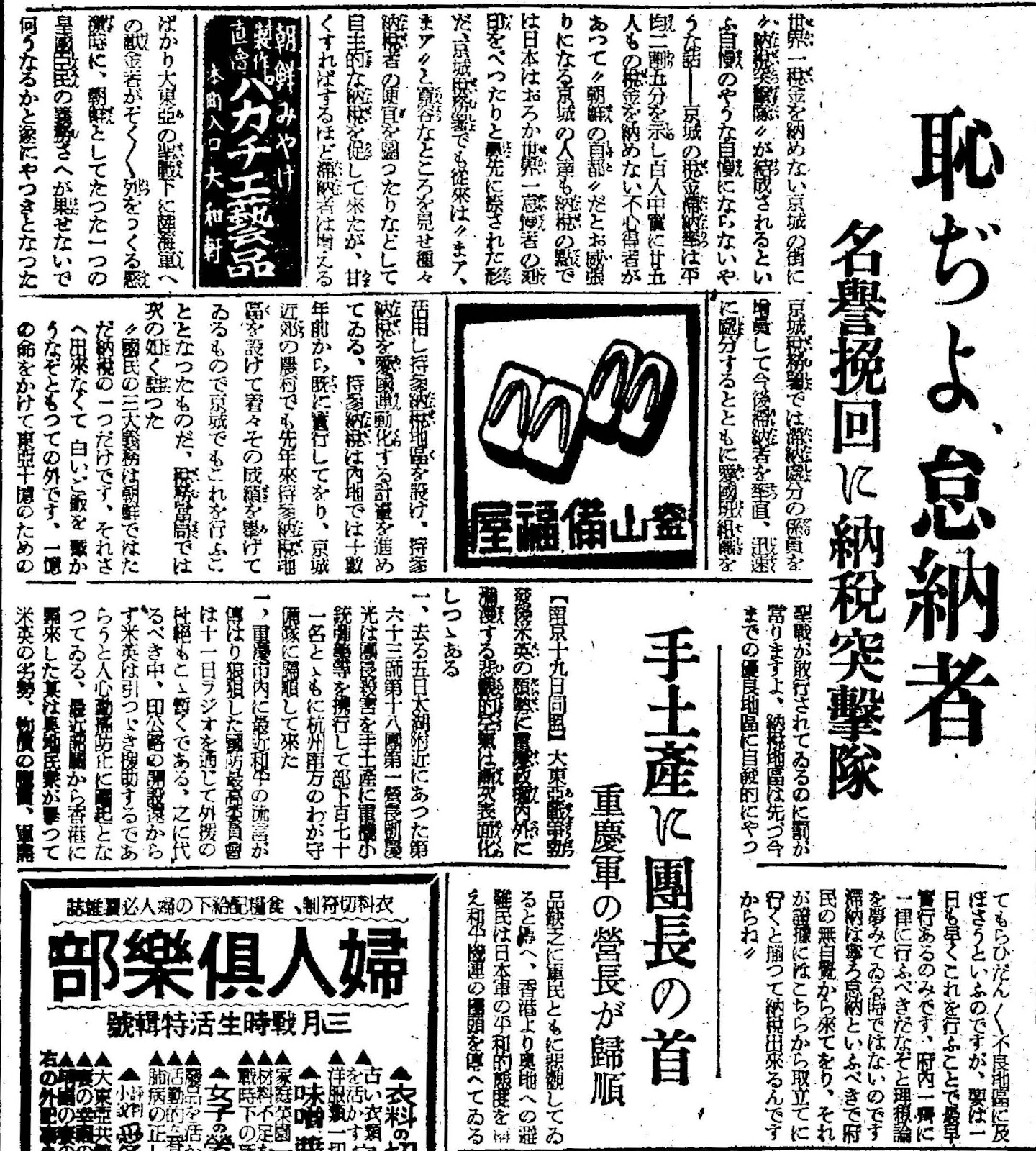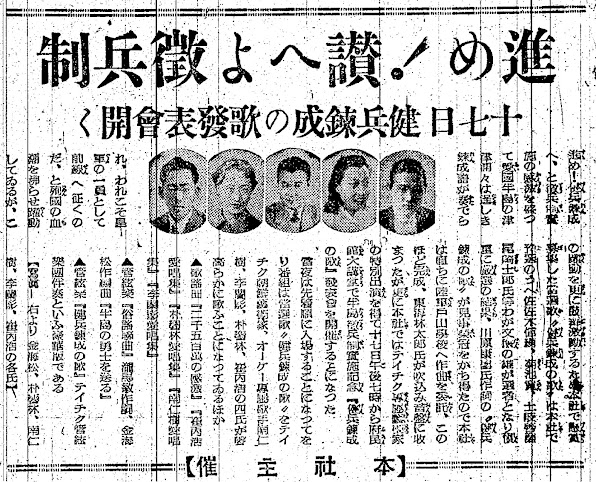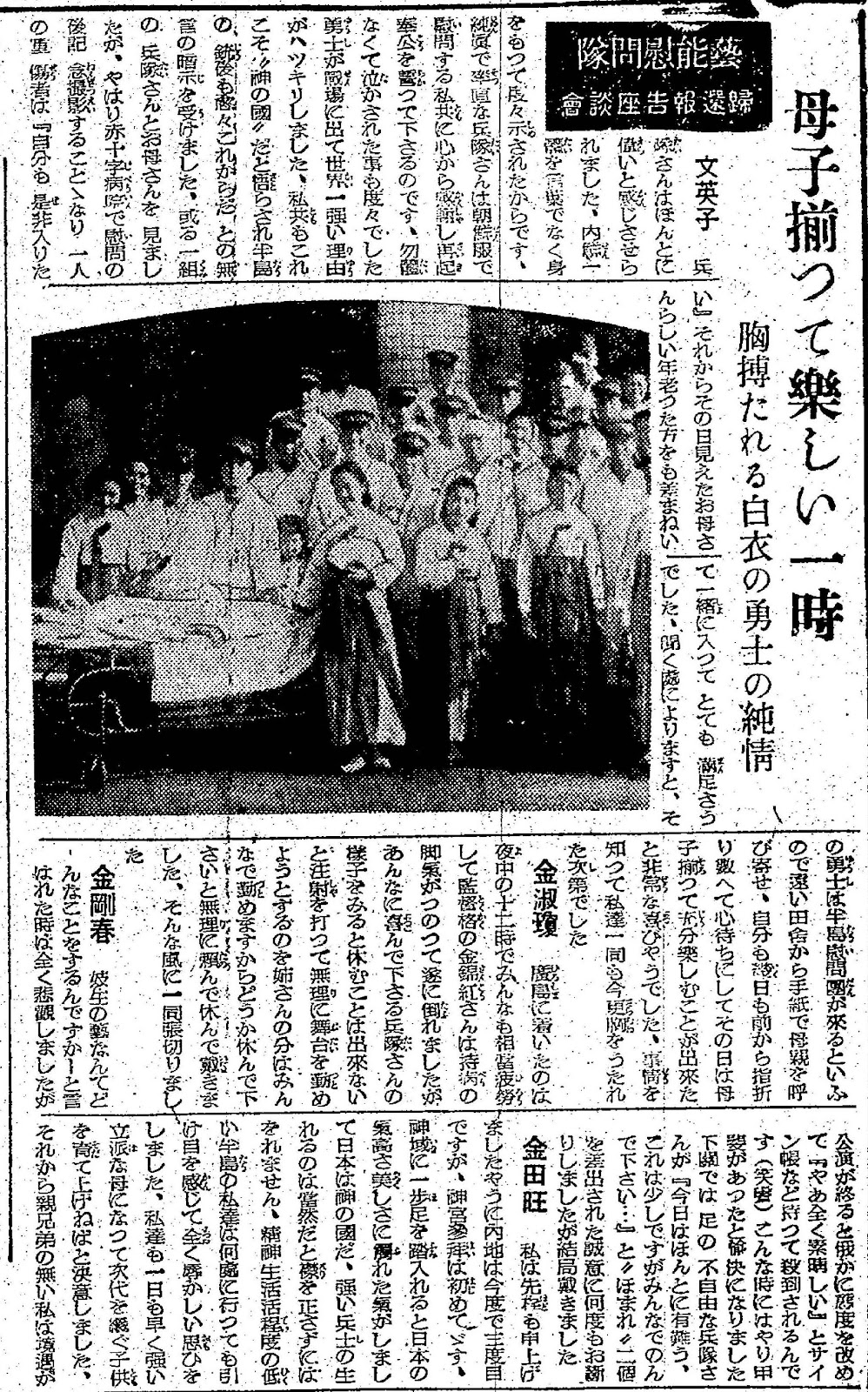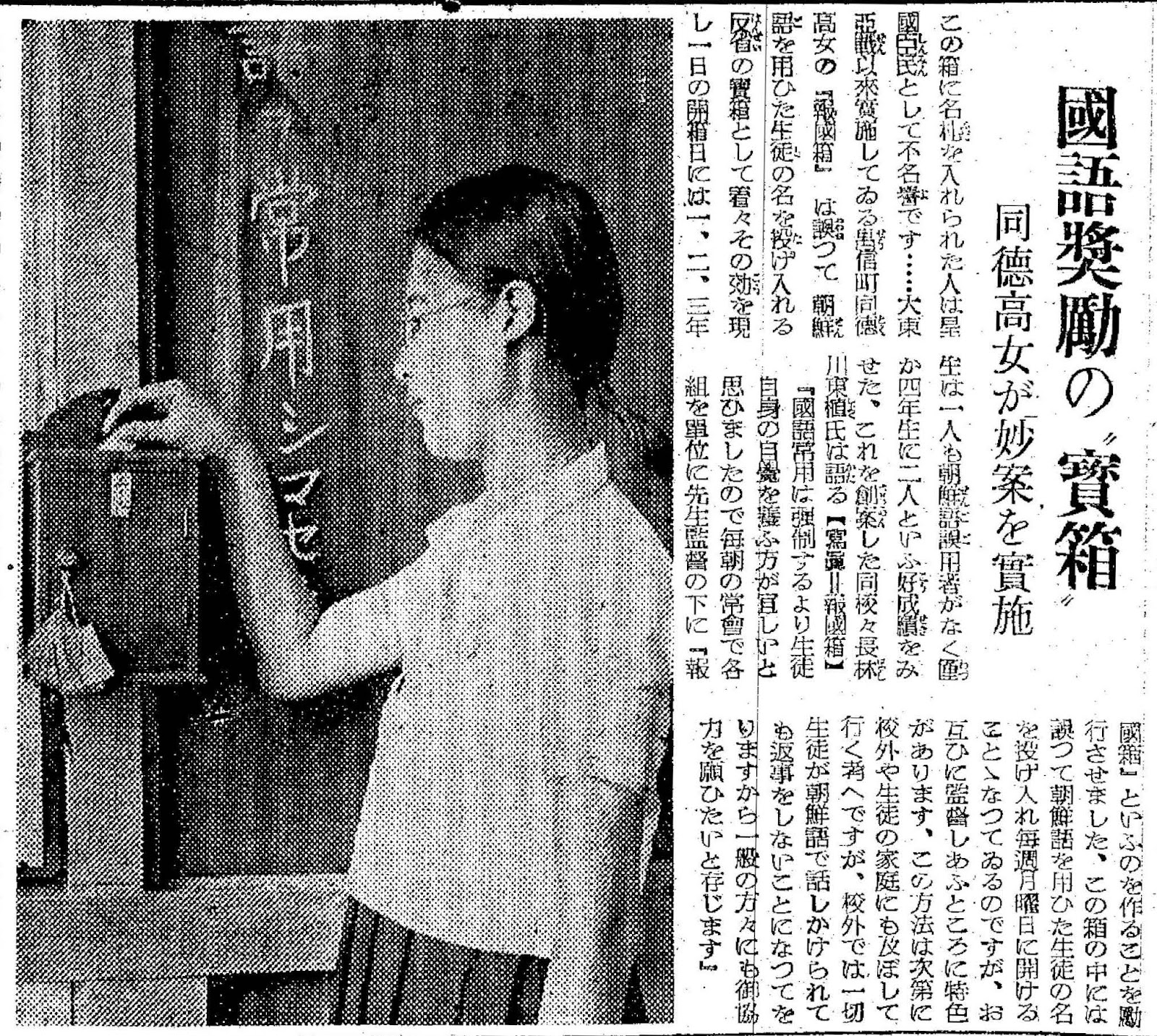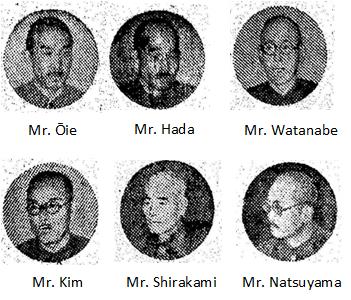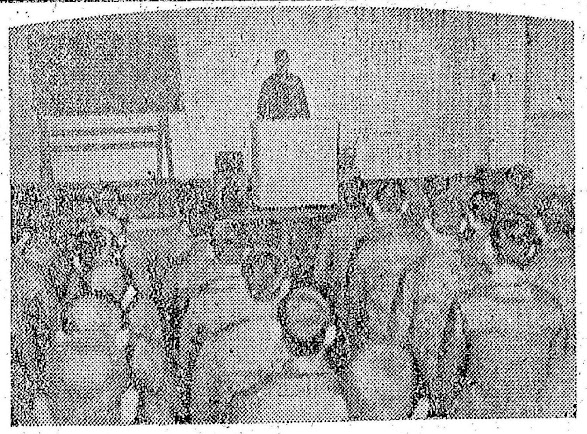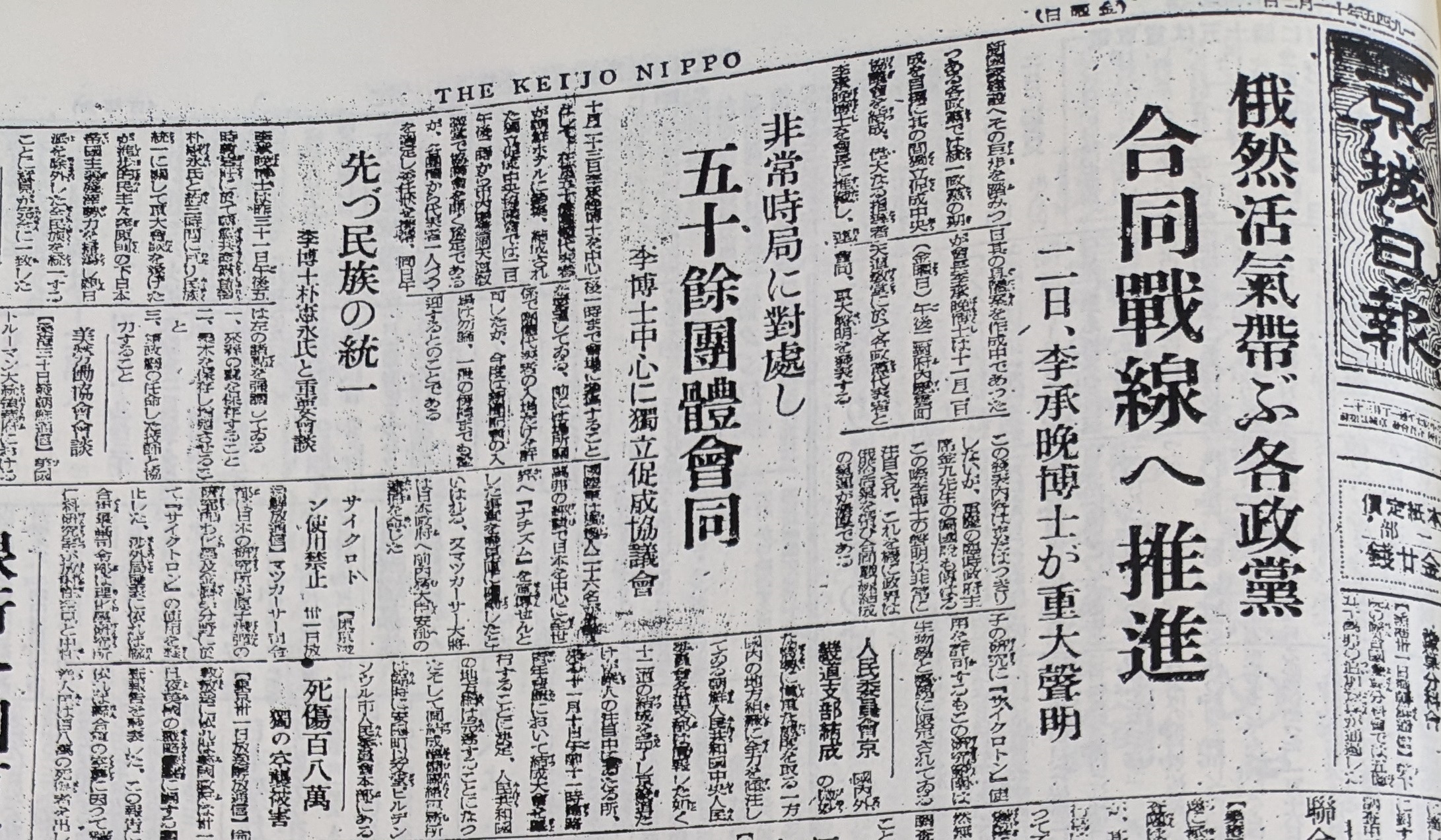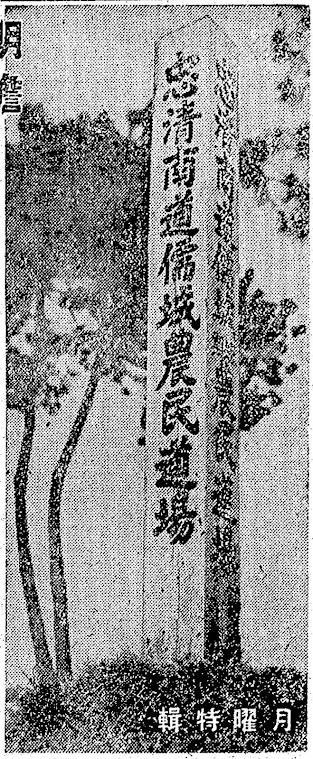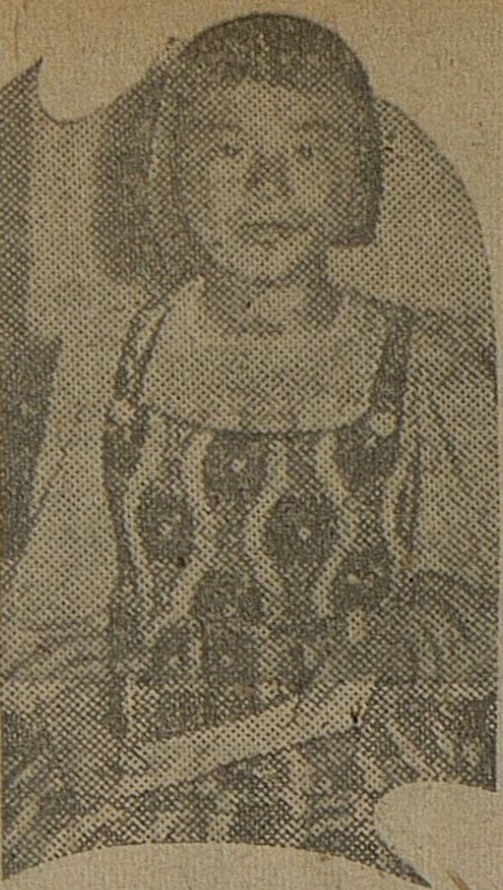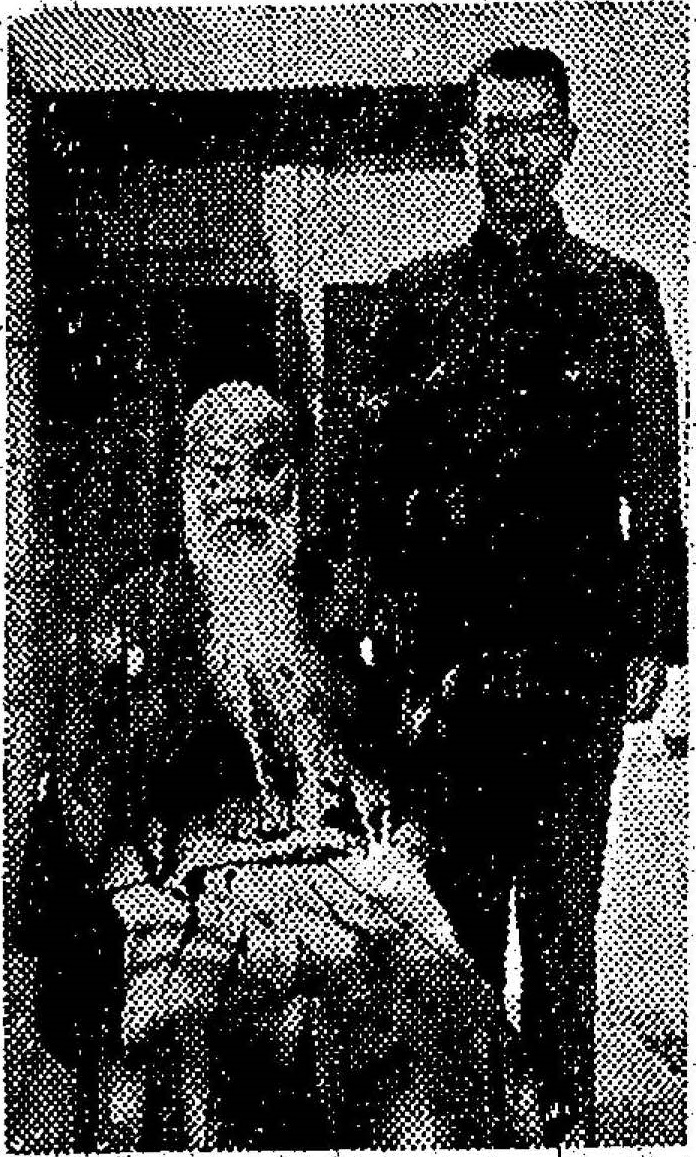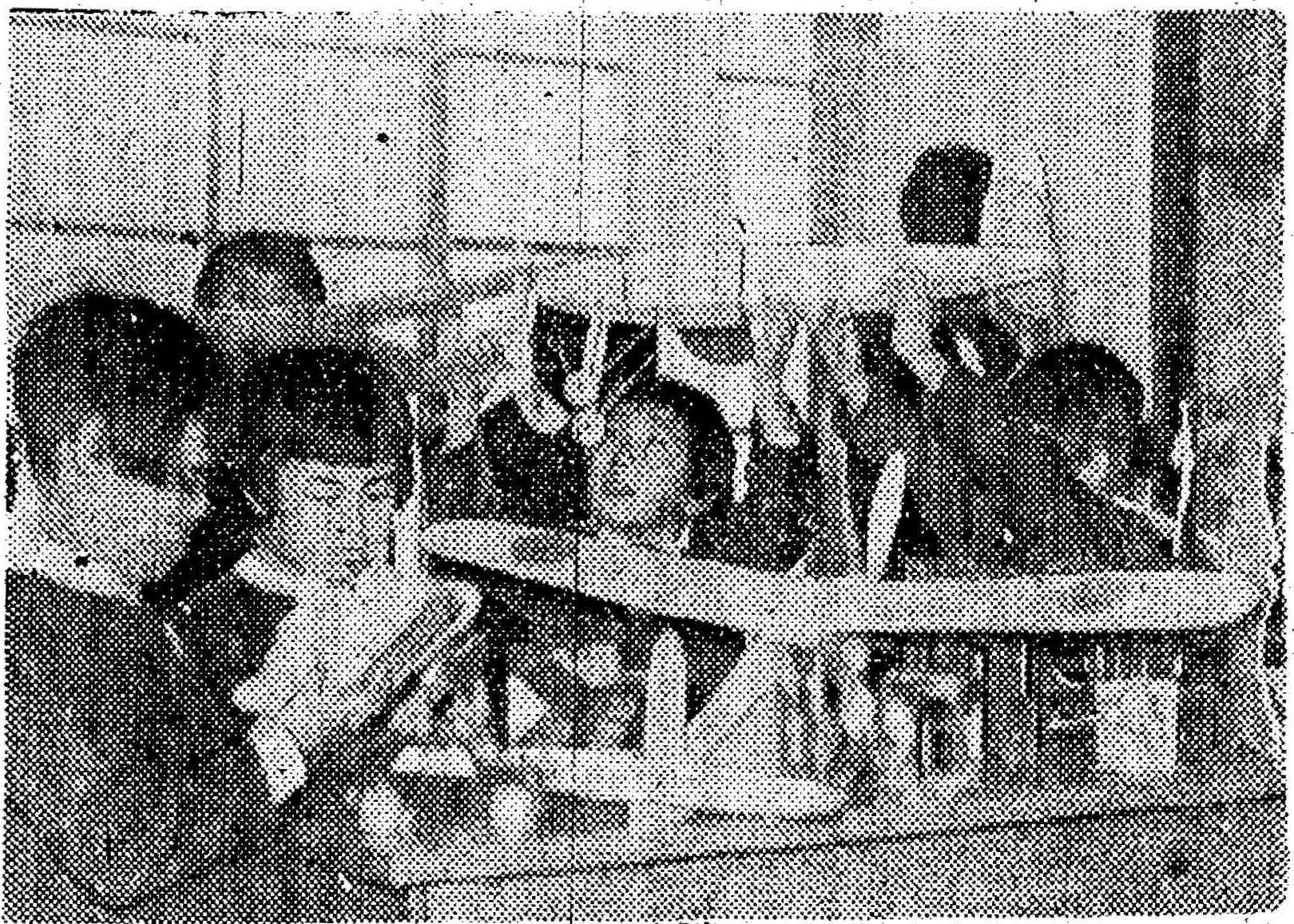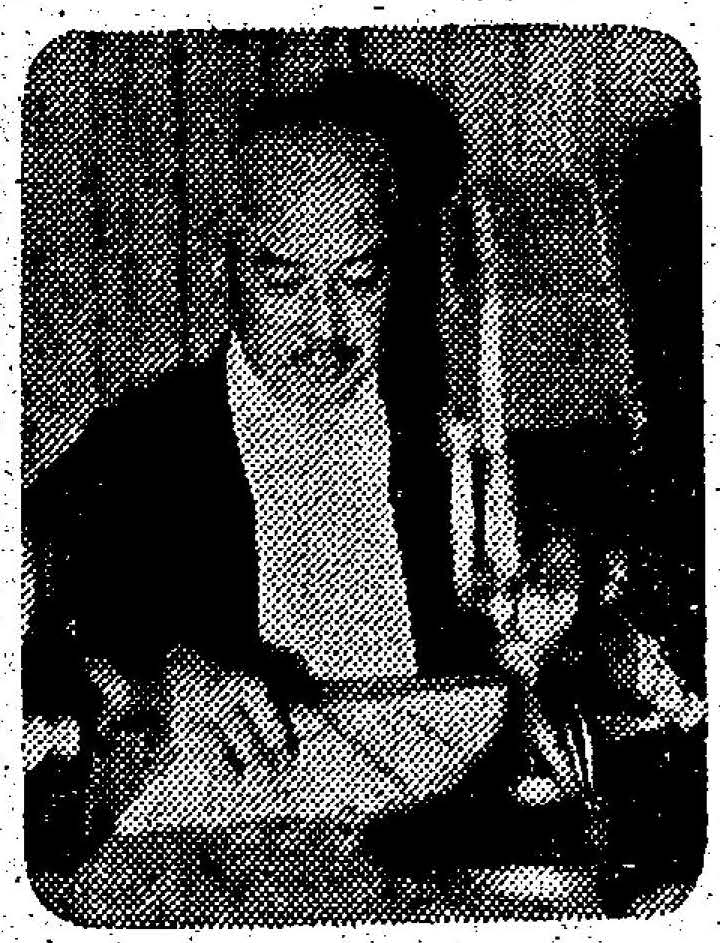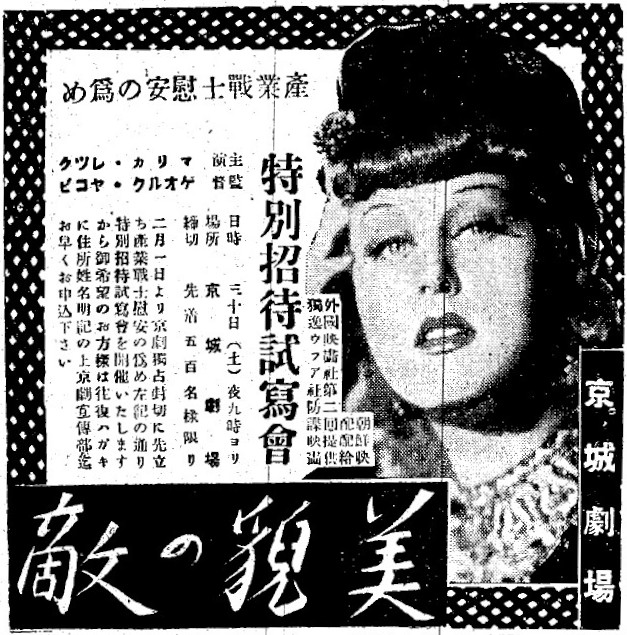‘Yōko versus Hoshiko’, a 1944 morality play pitting ‘good Korean woman’ Yōko, who is kind and considerate, against ‘bad Korean woman’ Hoshiko, the selfish, corrupt patriotic group leader harboring liberal and hedonistic British/American thoughts who ‘needs to be shot’ for betraying Imperial Japan
This is my translation and transcription of six fictional stories from Keijo Nippo, a propaganda newspaper and mouthpiece of the government of Japan-colonized Korea. They have never been republished or translated before, to the best of my knowledge. Ever since someone dumped these old newspaper issues in the Internet Archive last October, I have been slowly translating and posting select articles at various subreddits to share my findings with the wider community.
‘Yōko versus Hoshiko’ was a Keijo Nippo newspaper serial featuring fictional educational dialogues pitting Yōko, the ‘good’ Korean woman who is selfless and cares about others, against Hoshiko, the ‘bad’ Korean woman who is selfish, greedy, and only cares about herself, as they argue about the correct way to live their daily lives governed by the Patriotic Groups of wartime Seoul. It’s a very interesting glimpse into how Koreans lived their lives in 1944 Seoul. Keijo Nippo was more than just a newspaper – it also functioned like a textbook to spread propaganda throughout Korea, so chances are that, all over Korea, each Patriotic Group leader talked with their followers about Yōko and Hoshiko during their group meetings.
Yōko Higashi and Hoshiko Nishino are allegorical names. The Yō in Yōko is the Chinese character 陽 (the sun), or the yang in the Chinese yin-yang concept. Higashi literally means “East”, so her name could be translated as Sunny East, representing the Japanese Rising Sun and the goodness of East Asia.
In contrast, the Hoshi in Hoshiko literally means “Star”, and Nishino literally means “West field” in Japanese, so her name could be translated as Star Westfield, representing the night sky, or darkness, and also alignment with the ‘evil’ West. Hoshiko peppers her speech with English words like ‘all mighty’ and ‘hiking’. She is accused of harboring liberal thoughts (the belief in human freedom) and having hedonistic attitudes that come from Britain and the United States. She is an entitled Korean Karen who abuses her personal influence and turns to the black market to get extra food rations and goods, and stiffs the bike couriers who deliver her shopping home from the stores.
Patriotic Groups (JP: aikoku-han, KR: aeguk-ban, 愛國班) were neighborhood cells which functioned as the local arm of the Korean Federation of National Power (国民総力朝鮮連盟, 국민총력조선연맹), the single ruling party of colonial Korea. They typically consisted of a few households, led by a Patriotic Group leader, who acted as a mini-tyrant micromanaging the lives of everyone within the Patriotic Group. That included things like rationing food and goods, enforcing mandatory State Shinto prayer times and shrine visits, ‘volunteering’ laborers upon the colonial government’s request, arranging marriages, holding mandatory Japanese language classes, spying on ‘ideological criminals’, etc.
The Patriotic Group leaders were often corrupt, enriching themselves and their friends and families at the expense of the rest of the group members. Many Koreans filed complaints to report such leaders, but it’s unclear whether this had any effect on reducing corruption.
It should be noted that former Patriotic Group leaders were among the first to be targeted for reprisals following Korean Independence in August 1945 – many of their homes were set on fire, as witnessed later by incoming American soldiers who were initially confused as to what was going on.
(Translation)
Gyeongseong Ilbo (Keijo Nippo) April 12, 1944
Yōko and Hoshiko
A patriotic group leader who embezzles rations
This is a treacherous act, let’s correct this
Yōko Higashi and Hoshiko Nishino are two women who will sometimes appear in this column.
◇Yōko Higashi is an honest girl with a kind heart, who takes care of others with kindness, gives her all teaching others, and is loved by everyone.
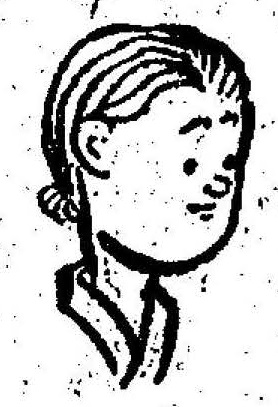
◇Hoshiko Nishino is a narrow-minded, selfish, and conceited woman. She is a woman who turns to the black market, talks behind people’s backs, and is hated by everyone for being the ‘gossip general’ who always spreads gossip around the water well. We see people like Yōko and Hoshiko on the trains, at the grocery stores, at the seafood stores, in the kitchens, in government offices, and at work everywhere. Indeed, there are times when Yōko and Hoshiko, who are polar opposites, are in conflict with each other inside our own hearts.
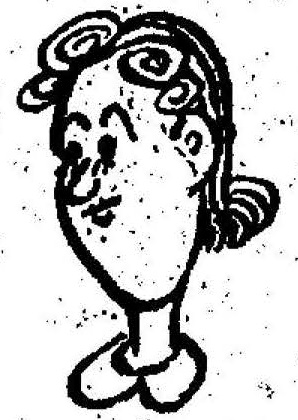
In such cases, we must never let Hoshiko defeat us. Let us drive Hoshiko away from our hearts and from our surroundings, and let every one of us become like Yōko to build a bright, righteous, and strong posture on the home front.
Hoshiko: Well, it’s been a while, Yōko. I’ve just become a patriotic group leader!
Yōko: Well, you must be very busy. I really appreciate your hard work.
Hoshiko: No, it’s better to have the goods roll in than to be busy.
Yōko: Well, what do you mean by ‘the goods rolling in’? What kinds of things ‘roll in’ when you become a patriotic group leader?
Hoshiko: All sorts of goods will roll in. The goods that are rationed to the patriotic group are not necessarily distributed to all of the members of the patriotic group. There are some households who say they don’t have charcoal these days, but you should come to my place. I have lots of charcoal at home.
Yōko: Really? Well, you mustn’t do that. You will be arrested by the Economic Police. First of all, if you do such an unscrupulous thing, your neighbors will be annoyed, and it would be a disgrace to us women who protect the home front.
Hoshiko: You are such a good person! But if there are no perks to the job, no one will want to become a patriotic group leader.
Yōko: It is because of people like you that there will always be a black market. Let’s break off our friendship! I really want you to put that kind of thinking aside, and work for the good of everyone. Please be a really good patriotic group leader. First and foremost, the black market must be eliminated on the home front. To do this, I think we women should be the first to take the initiative in eliminating the black market. Really, please don’t do anything bad.
Despite Yōko’s earnest pleas, Hoshiko left with a cold look on her face, saying goodbye and leaving.
Source: https://www.archive.org/details/kjnp-1944-04-12
Gyeongseong Ilbo (Keijo Nippo) April 16, 1944
Yōko and Hoshiko
The people who abuse their influence
The traitors who disturb the rationing of goods on the home front
When we mention that your ‘face’ is not good in this column, we don’t mean that you have a crooked nose or a big mouth. What we mean is ‘face’, as in using your face to your advantage, or the abuse of personal power.
Yōko: Oh, that’s such a rarity! I haven’t eaten a yōkan in such a long time. Where did you get it?
Hoshiko: Hee hee hee! I wonder how I got it!? I also have some monaka! It’s filled with so much red bean paste. But I didn’t want to serve it up all at once, or else your eyes will get dizzy. So, I’m saving some for later.
Yōko: Really? You also got monaka? That’s amazing, Hoshiko. When you go out a lot, you can find anything, can’t you?
Hoshiko: Oh, no. In the past, it was said that even a dog will eventually run into a pole if it keeps walking. Now that is no longer true. No amount of walking will do any good.
Yōko: Then, what did you do to find these things?
Hoshiko: By using my face.
Yōko: What do you mean, your face?
Hoshiko: Oh, you’re so slow! What I mean is, I used my face to my advantage! Look, remember what happened at Jingū Stadium? Someone used their face to gain admission.
Yōko: What?!
Hoshiko: Don’t be surprised. Nowadays, you can’t get anything without wielding your face (influence). It’s a common saying these days. [In the order of importance], number one is face, number two is the black market, and number three is money.
Yōko: So money is last place?
Hoshiko: That’s right. There has never been a time when money is more worthless than now. No matter how much money you have, you can’t get things easily. But although money is the reason the black market exists, money always yields to the power of face. Face, face, face! Face is all mighty!
Yōko: But you see, Hoshiko, is it really right to use your face and the black market in this way?
Hoshiko: What?
Yōko: This is the way I feel. Yes, the rationing system is not so perfect in Seoul right now, or in Korea for that matter. We are in a transitional period. Even I know very well that in transitional periods, the black market and the abuse of personal influence are common, as they apparently were in mainland Japan. But that doesn’t mean it’s a good thing.
Hoshiko: …
Yōko: I know that in a place like the Korean peninsula, people from mainland Japan have to take pride in themselves and try to be role models for the Korean people. Yes, it’s inconvenient to not have things. But they say, ‘Don’t be concerned about scarcity, but be concerned about inequality.’ When someone abuses their personal influence or turns to the black market and buys up things, then there are less things to go around for the other people, right? In this transitional period, isn’t it true that everyone should be more careful and yield to each other to compensate for the inadequacies of the system? As long as everyone has that spirit, I don’t think there will be any complaints or dissatisfaction. I often hear rumors of embezzled rations at certain department stores, or snack supplies diverted into the black market at certain stores, but I think there is a need for such companies to be corrected. Is there anything I’m saying that’s wrong?
Hoshiko: Before, I thought that using my face was a very good thing, but now I’m going to think about it again a little more.
Source: https://www.archive.org/details/kjnp-1944-04-16
Gyeongseong Ilbo (Keijo Nippo) April 18, 1944
Yōko and Hoshiko
The black market has already penetrated deeply
Hoshiko’s outrageous diary
X-th month, X-th day
I was so impressed by Yōko-san’s reasonable words. I almost did get myself into a terrible situation. If this young lady had not given me that warning, I would have had nothing to eat by now, not even a snack.
It is true, as that lady had said to me, that theory and practice do not always coincide. Even if something makes sense in theory, it requires rethinking when it comes to what to do in the present moment. No matter how much I, Yōko, and a few others may talk endlessly about righteous behavior, what difference does it make?
X-th month, X-th day
Yesterday, I bumped into Yōko on my way home after buying 50 eggs from the black market. She looked at me as if she was disappointed in me. I told her, “You’re going to lecture me again about using my face or turning to the black market, aren’t you?” I continued, “I’ll listen to your lectures about having a righteous heart, but no way am I going to be hung out to dry”. To this, she looked at me with her round eyes and said, “Your thoughts are apparently still carrying around the residues of liberalism!” She was making me out to be a fool! What’s the use of being righteous, if you can’t eat?
X-th month, X-th day
Today I brought five eggs to my neighbor, and she gave me a little bit of ham in return. My neighbor is a lady who is a master of the black market, so she always has a large stockpile of rare things. I must put more energy into this … .
X-th month, X-th day
I went to the department store office with my neighbor Eiko, and the clerk gave us ration tickets for tabi (split-toed socks) and stockings. At another store, there was a mild-mannered old gentleman who seemed to have a good-looking face. He smiled at Eiko and handed her a ticket for Japanese sweets, saying, “I have one left over, so I’ll give it to you”. When I asked Eiko if she could introduce me to this old gentleman, she said, “No, no, no. If I introduce him to a master of personal influence and the black market like yourself, he won’t come back to me”. I felt so offended.
Source: https://www.archive.org/details/kjnp-1944-04-18
Gyeongseong Ilbo (Keijo Nippo) April 21, 1944
Yōko and Hoshiko
A spirit of mutual support and cooperation
This is the way of the patriotic group
Hoshiko, the bad woman who has appeared in this column for only the fourth time, is already being bombarded with outrage from all sides, with things said like “Hoshiko needs to be shot!” So, even the brazen Hoshiko is starting to show signs of remorse. Hoshiko was not the only one who was shamelessly pursuing her black market activities to exclusively protect her own lifestyle, to indulge her own self-interest and greed through embezzlement and the abuse of personal influence, and to be absorbed in the pursuit of daily necessities. Since there were many people around Hoshiko who continued such acts, Hoshiko had also become a player in this field before she even knew it. Hoshiko was somewhat depressed today and avoided going shopping.
Yōko woke up early and was sweeping the road at the gate when a neighbor came out with her bamboo broom.
She greeted Yōko with a morning greeting, “You’re up early, aren’t you, Yōko?” Then she said,
“There is apparently a bad person named Hoshiko who is on the news, but the young wife of a patriotic group leader at XXX-chō looks just like Hoshiko! She looks so much like Hoshiko, that the group members finally got angry and said, ‘We can’t trust a patriotic group leader who is with someone who looks just like Hoshiko, so we’re going to ask you to step down.’ So, they finally forced the patriotic group leader to step down. Isn’t this a truly delightful story?”
“I think our patriotic group needs to get along with each other more and more. I hope more people like yourself, Yōko, will take the lead, and lead the way. There is a saying, ‘Don’t be concerned about scarcity, but be concerned about inequality.’ The other day, when apples were distributed, one apple was cut into eight pieces and distributed to three stubborn and inflexible wives, who insisted that the apples be divided into portions for each household, without considering the number of family members. I don’t know what to make of it.”
“The apples had neither flavor nor shape. If we had the desire to help each other and yield to each other, we wouldn’t have to waste time and money like this. It seems that the three wives, who are the elders and advisors of this patriotic group, are no different from Hoshiko.”
Yōko laughed and said, “From now on, when it comes to rationing, we will take the lead and give those rations to the elderly and the children, while we will deprive ourselves of those rations. It is useless to respond with logic to those who are greedy and unreasonable. Let’s wake them up by putting things into practice a little.”
Source: https://www.archive.org/details/kjnp-1944-04-21
Gyeongseong Ilbo (Keijo Nippo) April 23, 1944
Yōko and Hoshiko
“I’m just picking one flower” is an attitude that comes from the U.S. and Britain
Don’t pick and ruin the flowers! Follow the etiquette for flower viewing
The sky was beautifully clear and the mountains were filled with fragrant flowers in springtime.
Hoshiko: Yōko, look! Look at those beautiful Forsythia flowers over there! Since this is a special hiking trip, let’s each pick one flower to take home as souvenirs.
Yōko: No, no! Flowers and trees that bloom in the fields and mountains are beautiful only when they are in their natural habitat, and to pick them would be like destroying the mountains. Then what would be the point of hiking here?
Hoshiko: But there are cherry blossoms and rhododendrons blooming all over the mountain here and there. Even if you pick just one flower, the beauty of the mountain will not change. It is because I love the beauty of nature that I try to enjoy it at home.
Yōko: I understand your love of beauty, but that is the wrong kind of beauty. Imagine a thousand people climbing this mountain, who are each willing to pick one flower just for themselves. What will happen to the mountain then?
Hoshiko: You’re being unreasonable. I’ll never climb a mountain with you again.
Yōko: Think more carefully and calmly. You see, these poor cherry tree twigs have been thrown away along this road. There are people who are not satisfied with the flowers they hand-picked from the mountains, and don’t even take them home with them. It’s a nuisance to see them selfishly waving those big branches around on the train, and it’s not a very admirable sight. What is the beauty in arranging stolen flowers in your home?
Hoshiko: How rude of you to say that it’s stealing! You don’t have the delicate feelings to pick a single flower.
Yōko: I think that breaking off branches from the tree in the mountains and taking them home is similar to black market activities. If there is even a piece of pureness and morality in your heart, those tantalizing Forsythia flowers will bloom beautifully again next year to comfort our hearts. This is not just about mountain flowers and trees. I believe that there is still much of that British and American mindset in our personal lives that is only concerned with our own personal pleasure, as long as it is convenient for us. We should definitely liquidate this mindset at this time.
Source: https://www.archive.org/details/kjnp-1944-04-23
(Note: In the days before widespread car ownership, shoppers at stores would sometimes have bike couriers deliver their goods home.)
(Note about currencies: Each morning edition of the Keijo Nippo of 1942 was priced at 6 sen. Today, each morning edition of Asahi Shimbun is priced at 160 yen. For this I will use the conversion of 140 Japanese yen to the US Dollar in today’ money.)
Gyeongseong Ilbo (Keijo Nippo) April 28, 1944
Yōko and Hoshiko
You must carry your own luggage!
When you use a deliveryman, you must pay the stipulated fee
The earnest and homely Yōko contrasts with Hoshiko, whose character still bears the residue of liberalism. Each exudes her own idiosyncrasies in their daily lives. When they go out to the Honmachi District [the area just south of Myeongdong Cathedral] to do a little shopping, Hoshiko, who is not willing to work and only cares about how the whole world sees her, calls a deliveryman and says, “Please take this to my house, will you?” Yōko, dressed in her Monpe work pants, happily carries a pile of her patriotic group’s rations in her hands.
“Hoshiko, we are in the middle of a war. You have to cut down on waste”, said Yōko to Hoshiko, but her words only landed on deaf ears. Though the maximum service charge of a deliveryman is fixed, Hoshiko is still poisoning herself and others around her by entertaining her vanity of flipping through wads of money the old-fashioned way and offering a small gratuity.
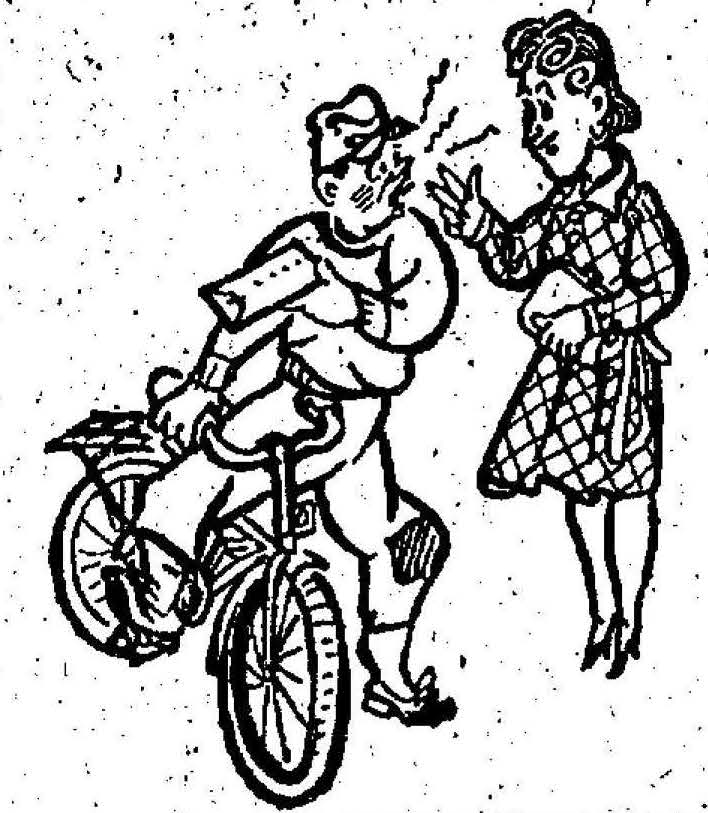
Yōko: Hoshiko, do you know how much it costs to make a delivery in one zone?
Hoshiko: What do you mean by one zone? I pay just as they tell me to when it’s time to pay the fee.
Yōko: How can you be so sloppy? One zone is based on two kilometers from the place where you deposited the delivery, and this fee is 20 sen ($3.81 USD today). For each additional kilometer, 5 sen ($0.95 USD today) is added.
Hoshiko: Well, is it that cheap according to the terms and conditions…?
Hoshiko looked surprised as if she just learned about this. (But who is the one who disrupts business by not tipping every time a delivery is made?)
Yōko: However, that’s just for regular deliveries. For special deliveries, items loaded on bicycles are charged 25 sen ($4.76 USD today) per kilogram, and items that can only be carried by a rear bicycle cargo trailer are also charged 40 sen ($7.62 USD today) or less per kilogram. For cash deliveries, the charge is 20 sen ($3.81 USD today) or less for a delivery of up to 10 yen ($190 USD today). For each additional yen ($19 USD today), an additional charge of 5 sen ($0.95 USD today) or less is added.
Hoshiko: Since I didn’t know this, I used to worry a lot when I asked for cash deliveries. Besides, on bad weather days, you may be charged a lot.
Yōko: That’s because there is an after-hours service, and if you make a request between 11 p.m. and 6 a.m. the next morning, if you make a request in the rain or snow, or if you make a round-trip delivery, you will be charged double the amount of each charge.
Hoshiko: Thank you very much for deepening my social knowledge. But nowadays, courier companies don’t come immediately after you call them.
Yōko: That’s why you have to carry everything yourself.
Source: https://www.archive.org/details/kjnp-1944-04-28
(Transcription)
京城日報 1944年4月12日
陽子さんと星子さん
配給品を着服する班長
それは国賊です、改めましょう
本欄に東陽子、西野星子の二人の女が時折お見えすることになります。
◇東陽子=心の優しい素直な娘、親切に他人の世話をし、身を以って人を指導し誰からも愛されるいい娘。
◇西野星子は心の狭い利己的なキザな女。闇をやり、人の陰口を叩き、常に井戸端会議の大将で総すかんの女です。私達は電車の中、八百屋、魚屋の店先、台所、お役所、会社いたる所で陽子さん、星子さんを見受ける。否、私達の心の中に正反対の陽子と星子が葛藤するときがないでしょうか。
そんな場合、断じて星子に負けてはなりません。私達は私達の心から私達の周囲から星子を追い払い、一人残らず陽子になって明るい正しい、そして強い銃後を造ろうではありませんか。
星子:『まあ、お久しぶりですね。陽子さん。妾、今度愛国班長になったのよ』
陽子:『まあ、それはそれはお忙しいことですね。ほんとうに御苦労様です』
星子:『いえ、忙しいよりも物が這入るほうがいいですよ』
陽子:『えー、物が這入るとはどんなことですか。愛国班長になれば何が這入るのですか』
星子:『それそれは這入りますよ。班に配給された物を班員に全部配給しないのですよ。此頃木炭が無いといっているお宅があるが、私の處にきてみて下さい。沢山ありますよ』
陽子:『へえー。あんた、そんなことをしてはいけませんよ。経済警察に引っぱられますよ。第一そんな不徳義なことをしたら隣近所は迷惑しますし、銃後を守るわれわれ婦人の恥辱ですよ』
星子:『あんたは人がよいですね。そんな余り得でもなければ班長にはなれませんよ』
陽子:『あんたの様な人が居るからいつまでも闇がたえないのです。絶交しますよ。ほんとうに、そんな考えは捨てて皆んなのために働いて下さい。本当に良い班長さんになって下さい。闇をなくするのはいま銃後で一番先にやらなければならぬのですよ。それにはわれわれ婦人が真っ先に闇撲滅に挺身すべきだと考えますわ。本当に悪いことはせんで下さい』
陽子の切々たる言葉にも拘わらず、星子は冷たい顔で『左様なら』と去って行った。
京城日報 1944年4月16日
陽子さんと星子さん
”顔を利かす”とんだ人達
戦う銃後の配給を紊す国賊です
顔はいけない、といっても決して鼻曲がりとか口が大きいとかいうのではありません。茲にいう顔とは即ち『顔を利かす』とか『顔でせしめる』というあの顔です。
陽子:『あら、珍しい。ヨウカンなんてあたし、随分戴いたことはないわ。どこでお求めになったの』
星子:『フフフフ、どう戴いたでしょう。まだ最中だってあるわよ。あんこがどっさり入ってるのよ。でも余り一ぺんに出してあなたが目を廻してはいけないと思って、後廻しにしてあるのよ』
陽子:『へエー、最中も、流石に星子さんね。よくお出掛けになるから、何だって見つかるのね』
星子:『あら、いやだ。犬も歩けば棒に当るって云うのは昔のことよ。今は歩いたって駄目よ』
陽子:『なら、どうしたって仰有るの?』
星子:『顔よ、カオ』
陽子:『顔...って』
星子:『あら鈍感ね。顔を利かすことよ。そら!いつか神宮球場で問題になったでしょう。顔の入場っていうのが、あの顔よ』
陽子:『まあ!』
星子:『吃驚することはないわよ。今はすべて顔でなければ物は手に入らないわ。顔でなければ闇、あなた此の頃の流行語をしらないの?一顔、二闇、三に金って』
陽子:『お金が一番ビリなの』
星子:『そうよ。今ほど金の値打ちのない時はないね。総て物は金がいくらあったって、物は容易に手に入らない。でもこの金が結局闇を誘う訳なんだけど、どうしたって顔には一籌を輸する訳よ。顔、顔、顔、顔はオール・マイティよ』
陽子:『でもねエ星子さん、そんなことが、そんな顔や闇が果して正しいことか知ら』
星子:『え?』
陽子:『あたし、こう思うの。成程、今の京城は、いいえ朝鮮では配給制度はハッキリしてないわ。過渡期よ。内地でもそうだったそうだけど、過渡期には闇や顔がつき物だということは、あたしにだってよく判るわ。だからといってそれが決していいことだとは云えないわ』
星子:『...』
陽子:『半島のようなところでは内地人は殊更に矜持を高くして半島の方の師表になるように努めなければいけないのじゃないか知ら。それは物がないと不自由よ。でもいうじゃないの。乏しきを憂えず等しからざるを憂うーって。誰かさんが顔や闇で物を買い占めると、それだけ他の人が足りなくなるのじゃない?過渡期にはそれだけ皆が自重し、互譲して制度の不備を補ってゆくのが本当じゃない?あたしは皆がその精神さえ持って居れば、不平だとか不満だとかいうものはないと思うもの。〇〇デパートでは情実配給をやっているとか、〇〇では菓子を横流しているとかいう噂をよく聞くけど、そんな業者こそ整備の必要があると思うの。あたしのいってること、間違っているか知ら』
星子:『あたし、顔ってとてもいいものだと思ってたけど、あたし、もう一度よく考えてみるわ』
京城日報 1944年4月18日
陽子さんと星子さん
闇すでに膏肓に入る
星子さんのとんだ日記帳
〇月〇日
陽子さんの尤もらしい話にあたしはウッカリ感心して、ひどい目に逢うところだった。若しお母さまの御忠告がなかったら、今ごろは何も食べる物がなくて、おやつひとつ戴けないところだ。
お母さまの仰有るように理論と実際は何時の場合でも一致しないのは本当だ。理屈には通っても、さて現在をどうする、となると再思を要する訳だ。あたし一人が、いいえ陽子さんや僅かな人達がいくら道義だとか蜂の頭だとかいったって、それがどうなるというんだろう。
〇月〇日
きのう闇の卵を五十個ばかり買って帰る途中でバッタリ陽子さんに逢ったら、あの人あきれたような顔をしていた。そして『あなた、また顔だとか闇だとかをやっていらっしゃるのね』だって。『あなたの道義心は一応聴いておくけど、あたしひぼしになるのは真っ平よ』といってやったら、あの人目を円くして、『あなたはまだ自由主義の残滓を背負っているのね』馬鹿にしてるわ。だって食えなくて何の己が道義かな、だわ。
〇月〇日
きょうお隣へ卵を五つ持っていってあげたら、ハムを少し下すったわ。お隣の小母さまは闇の名人だから何時も珍しいものを沢山蓄えていらっしゃる。あたしももっと馬力を掛けなきゃあ...
〇月〇日
お向こうの英子さんと〇〇デパートの事務所へ行ったら足袋と靴下の配給切符を呉れた。英子さん〇〇ではなかなかいい顔らしい柔和な老紳士がニコニコして、『一枚余ったから上げましょう』といって和菓子の切符を手渡した。あたしにあのおじいさん紹介して呉れない、といったら、駄目駄目、あんたのような顔と闇の先生に紹介したら、あたしの方へ廻って来なくなるわ、だって。失礼しちゃうわ。
京城日報 1944年4月21日
陽子さんと星子さん
扶け合い譲り合う気持ち
愛国班はこれで行きましょう
この欄を借りて登場した悪玉星子は僅か四回目にして早くも各方面から”星子撃つべし”の麗々たる攻勢に遭い、さすが厚顔の星子も反省の色がほの見えて来た。自分だけの生活のとりでを護ろうと闇行為、顔と情実によって我利我欲に溺れ、生活必需物資の獲得に狂奔し、てんとして恥じないのは星子ばかりではなかった。星子の周囲にこうした行為を続ける者が多かったので、星子も亦何時の間にかその道の選手となっていたのだ。きょう一日星子は何だか憂鬱になって買出しに行くことを避けた。
◇...陽子は早起きとともに門口の道路のはき掃除をしていると、お隣の小母さんがこれも竹箒をもって出て来た。
”まあ陽子さん早いですわね”と朝の挨拶を交わしたが、小母さんは思い出したように掃除の手をゆるめず話しかけるのだった。
『あのねえ陽子さん、新聞に星子さんという悪い人が出ているそうですが、〇〇町のさる愛国班長の若奥さんが、之はまた星子さんとそっくりなので、班員の方たちが遂に怒っちまって”星子さんみたいな方のいる班長さんには信頼出来ませんから辞めていただきましょう”と新聞をもって皆が合議し、とうとう班長さんを辞めて貰ったんですって。ほんとうに愉快な話ではありませんか』
『それにしてもわたし達の愛国班も、もっともっと仲良くなくては駄目ですわ。陽子さんみたいな方がどんどんと先に立って、音頭をとって下さい。乏しきを憂えず、平等ならざるを憂うって言葉があるけれども、先だって林檎の配給があったとき、頑固で融通のきかない奥さん三人のために、家族数の多少も考えず各戸一率に分けねばと一個の林檎を八つ切りにまでして配ったの。なんか全くどうかと思いますわ』
『林檎の味も形もあったものでありませんわ。お互いが扶け合い譲り合う気持ちがあれば、そんな無駄なことをしなくても済みますのにねえ。この班の長老だの顧問だのと顔を重んじる三人の奥様もどうやら星子さんと変わらないわねえ』
陽子は笑って、”小母さま、これから配給のときは私達が率先して、私のところでは我慢しますからどうぞお宅のお年寄り、お子供さまに、といって譲りましょう。欲張りで理屈をいう人に、理屈で応えるのは無駄ですわ。私達の小さい実践でもって目覚めて頂きましょうよ”
京城日報 1944年4月23日
陽子さんと星子さん
”一枝ぐらい”は米英根性
手折って荒すな、花見にも道義
限りなく大空は麗かに澄み渡り、馥郁繚乱と咲きみだれる春の山路。
星子:『陽子さん、御覧なさい。あそこに咲いている連翹の花の綺麗なこと。折角のハイキングなんですから家へのお土産に一枚づつ折って持って帰りましょうよ』
陽子:『駄目、駄目。野や山に咲く花樹は自然の野に山に咲いていてこそ美しく、そんなことしては山を荒すようなもので、何のためのハイキングか分かんないわ』
星子:『だけどここにも向こうにもお山中一ぱいに桜や躑躅が咲いていますもの。そのうちたった一枝位折っても山の美しさは変わらないことよ。あたしは自然の美を愛せばこそ、その美をおうちで楽しもうとするのだわ』
陽子:『あなたの美を愛する気持ちはよく分かるけど、それは履き違いの美というものですわ。私一人位一枝折ってもという気持ちの人達がこの山に千人も登ってごらんなさい。この山はどうなるか知ら』
星子:『理屈よ、そんなこと。あなたと一緒に山登りすることは今度から真平御免だわ』
陽子:『もっとよく落ち着いて考えて御らんなさい。ほら、この路にも桜の小枝が可哀そうに捨てられているわ。山から手折って来た花など満足におうちに持っても帰らない人がいるのよ。電車の中などであの大きな枝を我もの顔にふり廻すなんて迷惑だし、感心した図ではないわ。また盗んだ花をお家に活けて何処が美しいのでしょう』
星子:『盗んだなんて失礼ね。あなたには一輪の花を手折るデリケートの気持ちはないんだわ』
陽子:『山の樹木を折って持って帰ることは闇行為と同じだと思うの。清らかな道義心があなたの胸に一片でもあれば、あのいじらしい連翹の花はまた来年も美しく咲いて私達の心を慰めてくれます。これは山の花や樹だけのことではありません。自分一人の楽しみのために自分さえ都合がよければという米英的な心は私生活の上にまだまだ沢山あると思うの。この際断然清算すべきだわ』
京城日報 1944年4月28日
陽子さんと星子さん
荷物は自分で運ぶもの
用達人を使う時は規定料金を
真面目で家庭的な陽子さんと性格的に未だ自由主義の残渣がぬけきらない星子さんとは日常ちょとした生活の断面にも各々その特異性がにじみ出ます。本町通りに出てちょっとした買い物をすると勤労を厭い世間体ばかり気にする星子さんは用達人を呼びつけて『ちょいとこれ家まで頼むわよ』とカンタンに片付けて了う。陽子さんはきりっとモンペ姿も甲斐甲斐しく両手に山と積んだ愛国班の配給物も楽しげに運搬する。
『星子さん、戦争最中ですよ。無駄は省かなきゃ駄目ですよ』とたしなめても馬の耳に念仏です。こんな人に限って用達業者の最高用達料金というものは決まっているにも拘わらず、パッパッと昔風に札びらを切って若干の心付けを奮発するというはかない虚栄に酔って、今もって自他双方を毒しているのです。
陽子:『星子さん、あなたはいったい一区間の料金はいくらか知っていますか』
星子:『一クカンって何の事でしょうか。私は料金支払いの際は先方の言う通りに支払っていますよ』
陽子:『そんなだらしないことでどうします。一区間というのは物を委託した場所から二キロをもって基準とし、この料金は二十銭です。そして一キロを増す毎に五銭加算することになっています』
星子:『まあ、そんなに規約では廉くなっているんですか...』
今更のように驚いた顔の星子(そのくせ用達の度にチップをはずんで業態を乱すのは一体誰でしょう)
陽子:『ただし、それは通常用達の場合で特殊用達、自転車に積載した物は一キロに二十五銭、リアカーでないと載らぬ物は同様四十銭以内という風になっています。それから現金用達は十円まで二十銭以内。それ以上を増す毎に五銭以内を加算する規約になっています』
星子:『それを知らないものですから、今まで現金用達を頼む場合は随分心配したもんですわ。それにお天気の悪い日など、とても高く請求されることだってあります』
陽子:『それは営業時間外の用達というのがあって、午後十一時から翌朝午前六時までに依頼した場合、それから雨雪の中を頼んだ時とか往復用達の場合、何れも各料金の倍額を請求されますよ』
星子:『色々とほんとに社会知識を深めまして有難うございます。でも近頃の用達業者は電話しても直ぐには参りませんわね』
陽子:『ですから、何でも自分で運ぶに限りますよ』
